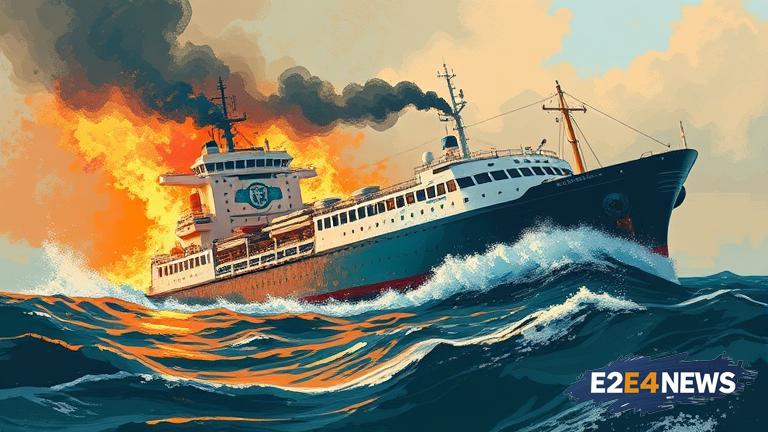The X-Press Pearl, a Singapore-registered cargo ship, was carrying a cargo of chemicals and plastics when it caught fire on May 20, 2021, off the coast of Sri Lanka. The ship was anchored about 9.5 nautical miles off the port city of Colombo, waiting to enter the port, when the fire broke out. Despite efforts by the Sri Lankan Navy and Indian Coast Guard to extinguish the fire, the ship eventually sank on June 2, 2021, causing a massive environmental disaster. The incident released a large quantity of toxic chemicals and plastics into the ocean, posing a significant threat to marine life and the coastal ecosystem. The Sri Lankan government was criticized for its slow response to the disaster, with many accusing the authorities of failing to take adequate measures to prevent the disaster and mitigate its impact. The government’s failure to respond effectively was attributed to a lack of preparedness, inadequate resources, and poor communication. The disaster also highlighted the need for more stringent regulations and safety measures to prevent such incidents in the future. The X-Press Pearl disaster is considered one of the worst maritime disasters in recent history, with far-reaching consequences for the environment, economy, and human health. The incident has sparked widespread outrage and calls for greater accountability and transparency from the government and shipping industry. An investigation into the incident is ongoing, with many questions still unanswered about the cause of the fire and the role of the ship’s owners and operators. The X-Press Pearl disaster has also raised concerns about the impact of human activities on the environment and the need for sustainable practices to mitigate the effects of climate change. The incident has been described as a wake-up call for the international community to take action to prevent such disasters and protect the world’s oceans. The Sri Lankan government has faced criticism for its handling of the disaster, with many accusing the authorities of prioritizing economic interests over environmental and human concerns. The disaster has also had a significant impact on the local fishing industry, with many fishermen reporting a decline in catches and income. The X-Press Pearl disaster is a stark reminder of the importance of prioritizing environmental protection and safety in the shipping industry. The incident has sparked a national conversation about the need for greater accountability and transparency in the government and shipping industry. The disaster has also highlighted the need for international cooperation to prevent such incidents and protect the world’s oceans. The X-Press Pearl disaster is a tragic reminder of the devastating consequences of human error and neglect, and the need for urgent action to prevent such disasters in the future.
